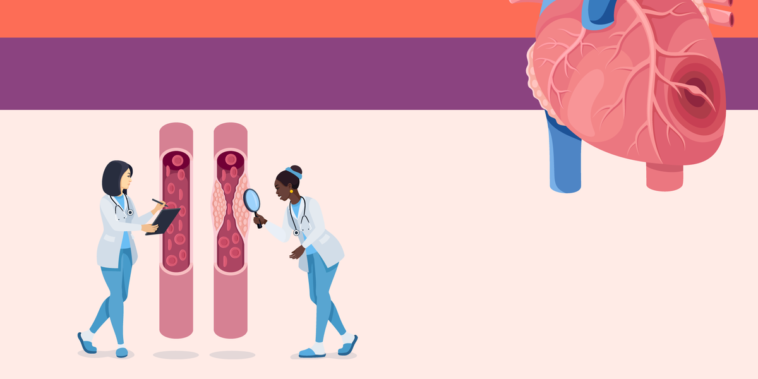Heart disease is the #1 killer of women in the U.S.
What is heart disease?
Heart disease includes many different conditions that affect the heart and its structures, like veins and arteries.
The most common type of heart disease in women is coronary artery disease
What increases your risk for heart disease?
Knowing your risk factors for heart disease can help you manage them with your healthcare provider.
Medical conditions
DYK?
High triglycerides are linked to clogged arteries (atherosclerosis) , which may lead to cardiovascular problems such as heart disease, stroke and heart attacks.
Being over 65
Being biologically female
Using hormonal birth control
Menopause
Race & ethnicity
The risk of dying from heart disease, from highest to lowest
Non-Hispanic Black people
Non-Hispanic white people
Hispanic and Latina people
Non-Hispanic white people
Asian or Pacific Islander people
Lower income & education levels or living in a rural area
-
People with lower education and income levels or people living in rural areas are less likely to have access to preventive health screenings, healthcare providers and medications that can help lower heart disease risk
Lifestyle factors
Family history
Some people have a higher genetic risk of heart disease.
Talk to your doctor about your risk if you have family members who have had:
Medicine matters
Taking prescription medication can help reduce your risk of heart disease, especially if you’ve already had a heart attack or stroke.
Cholesterol & triglyceride medications, like statins and pure EPA omega-3s like IPE
Blood pressure medications, like ACE inhibitors and beta blockers
Diabetes medications, like metformin and GLP-1 agonists or SGLT2 inhibitors
Blood thinners, like aspirin plus rivaroxaban
Reduce your risk
-
Quit smoking, vaping or using tobacco
-
Limit alcohol
-
Maintain a healthy weight
-
Eat high-fiber foods like vegetables and fruit
-
Reduce stress
-
Manage your blood sugar
-
Be physically active
-
Get enough sleep
-
Take your prescribed medications
This educational resource was created with support from Amarin.





